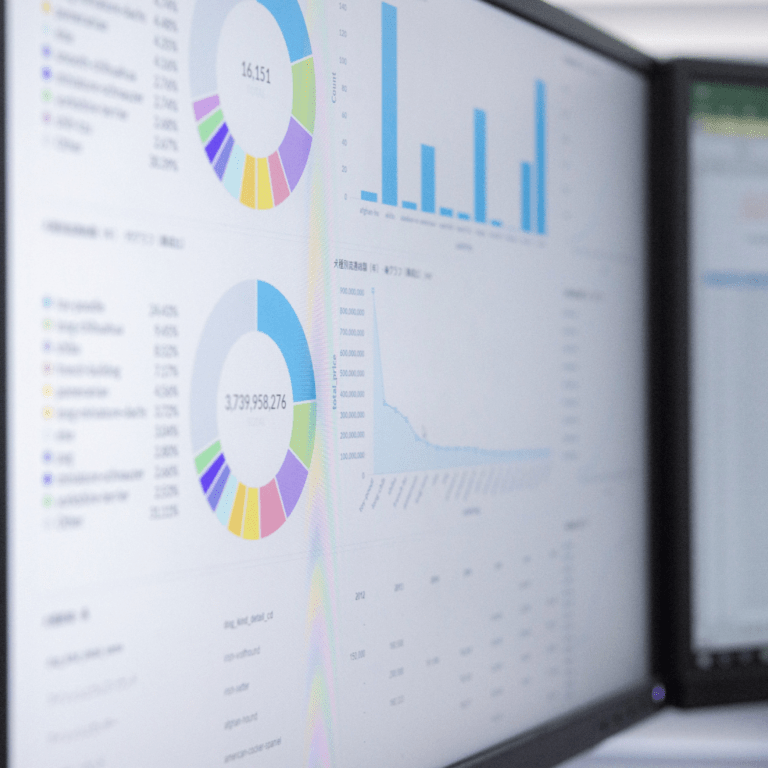Unlocking the Power of Data: A Beginner’s Guide to Data Analytics

Beginner’s Guide to Data Analytics
In today’s data-driven world, the ability to extract insights from data is becoming increasingly valuable. Data analytics empowers individuals and organizations to make informed decisions, identify trends, and drive business growth. In this comprehensive Beginner’s Guide to Data Analytics, we’ll explore the fundamentals of data analytics and provide beginners with the knowledge they need to embark on their journey into this exciting field.
Understanding Data Analytics:
An Overview Data analytics is the process of examining large datasets to uncover hidden patterns, correlations, and insights. At its core, data analytics involves collecting, cleansing, transforming, and analyzing data to extract meaningful information. For beginners embarking on their data analytics journey, understanding the foundational concepts is essential. A data analytics course for beginners provides a structured learning environment to grasp the key principles and techniques used in the field. From data visualization to statistical analysis, beginners will learn how to leverage tools and methodologies to derive actionable insights from data.
Getting Started with Data Analytics Tools and Technologies
One of the first steps in learning data analytics is familiarizing oneself with the tools and technologies commonly used in the field. Beginners can benefit from exploring popular data analytics platforms such as Python with libraries like Pandas and NumPy, R programming language, and SQL for data manipulation and querying. Additionally, data visualization tools like Tableau and Power BI can help beginners create compelling visualizations to communicate their findings effectively. Enrolling in a data analytics course for beginners provides hands-on experience with these tools, allowing learners to gain practical skills and confidence in their abilities.
Building a Foundation in Statistical Analysis
Statistical analysis is a fundamental component of data analytics, providing the framework for interpreting data and drawing meaningful conclusions. Beginners in data analytics must develop a solid foundation in statistical concepts such as probability, hypothesis testing, regression analysis, and inferential statistics. A data analytics course for beginners offers structured lessons and exercises to help learners grasp these concepts and apply them to real-world data scenarios. By understanding statistical principles, beginners can make informed decisions and validate their findings with confidence.
Applying Data Analytics in Real-World Scenarios
The true value of data analytics lies in its application to real-world problems and challenges. Beginners can explore a wide range of use cases where data analytics plays a critical role, from business intelligence and marketing analytics to healthcare and finance. Through case studies, projects, and practical exercises, a data analytics course for beginners provides learners with the opportunity to apply their skills in realistic scenarios. By working on hands-on projects, beginners can gain valuable experience and demonstrate their proficiency in data analytics to potential employers or clients.
Conclusion:
As data continues to proliferate across industries and domains, the demand for skilled data analysts is on the rise. For beginners eager to enter the field of data analytics, enrolling in a data analytics course for beginners is a valuable first step. By understanding the core concepts, mastering essential tools and technologies, and applying statistical analysis in real-world scenarios, beginners can unlock the power of data and embark on a rewarding career in data analytics. With dedication, curiosity, and a commitment to lifelong learning, the possibilities are endless in the dynamic field of data analytics.
https://www.facebook.com/learningforcareer01
https://www.linkedin.com/company/learningforcareer01/
What tools and technologies are commonly used in data analytics?
Popular tools and technologies in data analytics include programming languages such as Python and R, data manipulation and analysis libraries like Pandas and NumPy, SQL for querying databases, and data visualization tools such as Tableau and Power BI. These tools enable data analysts to collect, analyze, and visualize data effectively.
How can beginners build a foundation in statistical analysis for data analytics?
Beginners can build a foundation in statistical analysis by learning key concepts such as probability, hypothesis testing, regression analysis, and inferential statistics. Enrolling in a data analytics course for beginners provides structured lessons and exercises to help learners grasp these concepts and apply them to real-world data scenarios.
What are some real-world applications of data analytics?
Data analytics has a wide range of applications across industries, including business intelligence, marketing analytics, healthcare informatics, finance, and more. By applying data analytics techniques to real-world problems and challenges, businesses can gain valuable insights, improve decision-making, and drive innovation.
How can beginners apply data analytics in real-world scenarios?
Beginners can apply data analytics in real-world scenarios by working on hands-on projects, case studies, and practical exercises. By applying their skills to analyze real data sets and solve business problems, beginners can gain valuable experience and demonstrate their proficiency in data analytics to potential employers or clients.
What career opportunities are available for beginners in data analytics?
Beginners in data analytics can pursue various career opportunities across industries, including data analyst, business analyst, data scientist, data engineer, and more. These roles involve tasks such as collecting, analyzing, and interpreting data to drive business decisions, optimize processes, and solve complex problems. With the growing demand for skilled data analysts, beginners can explore diverse career paths and opportunities for advancement in the field of data analytics.
How can beginners overcome challenges and obstacles in learning data analytics?
Learning data analytics can pose challenges for beginners, such as mastering complex concepts, acquiring technical skills, and staying motivated throughout the learning process. To overcome these challenges, beginners can break down their learning goals into manageable steps, seek support from mentors and peers, practice regularly through hands-on projects, and celebrate their progress along the way. Additionally, maintaining a growth mindset, being persistent in the face of setbacks, and embracing a lifelong learning mindset can help beginners overcome obstacles and succeed in their data analytics journey.

